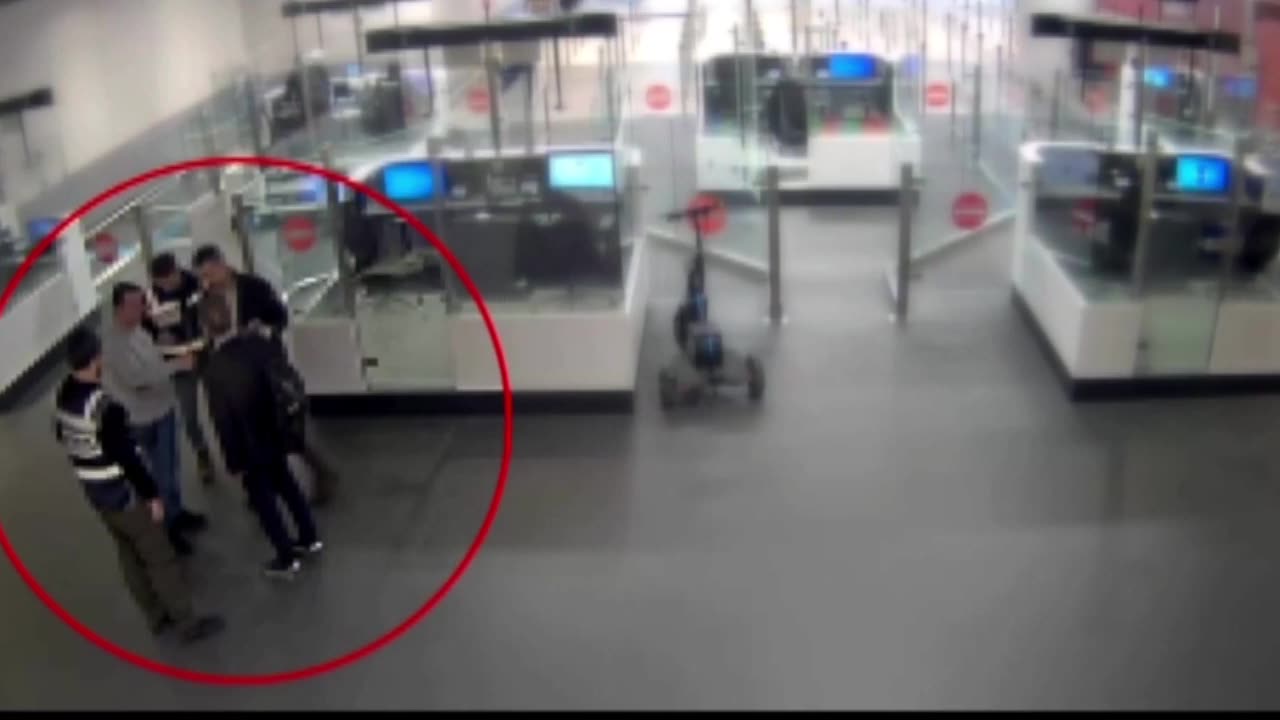Premium Only Content

Earthquake death toll tops 33,000, Turkey starts legal action
Earthquake death toll tops 33,000, Turkey
starts legal action
Rescuers pulled more survivors from the rubble on Sunday, nearly a week after one of the worst earthquakes to hit Turkey and Syria, as Turkish authorities sought to maintain order across the disaster zone and began legal action over building collapses.
With chances of finding more survivors growing more remote, the toll in both countries from Monday's earthquake and major aftershocks rose above 33,000 and looked set to keep growing. It was the deadliest quake in Turkey since 1939.
In a central district of one of the worst hit cities, Antakya in southern Turkey, business owners emptied their shops on Sunday to prevent merchandise from being stolen by looters.
Residents and aid workers who came from other cities cited worsening security conditions, with widespread accounts of businesses and collapsed homes being robbed.
Facing questions over his response to the earthquake as he prepares for a national election that is expected to be the toughest of his two decades in power, President Tayyip Erdogan has said the government will deal firmly with looters.In Syria, the disaster hit hardest in the rebel-held northwest, leaving homeless yet again many people who had already been displaced several times by a decade-old civil war. The region has received little aid compared to government-held areas.
"We have so far failed the people in north-west Syria," United Nations aid chief Martin Griffiths tweeted from the Turkey-Syria border, where only a single crossing is open for U.N. aid supplies.
They rightly feel abandoned," Griffiths said, adding that he was focused on addressing that swiftly.
Washington called on the Syrian government and all other parties in the country to immediately grant humanitarian access to all those in need.
More than six days after the first quake struck, emergency workers still found a handful of people clinging to life in the wreckage of homes that had become tombs for many thousands.
A team of Chinese rescuers and Turkish firefighters saved 54-year-old Syrian Malik Milandi after he survived 156 hours in the rubble in Antakya.
On the main road into the city the few buildings left standing had large cracks or caved-in facades. Traffic occasionally halted as rescuers called for silence to detect signs of remaining life under the ruins.
A father and daughter, a toddler and a 10-year-old girl were among other survivors pulled from the ruins of collapsed buildings Sunday, but such scenes were becoming rare as the number of dead climbed relentlessly.At a funeral near Reyhanli, veiled women wailed and beat their chests as bodies were unloaded from lorries - some in closed wood coffins, others in uncovered coffins, and still others just wrapped in blankets.
Some residents sought to retrieve what they could from the destruction.
In Elbistan, epicentre of an aftershock almost as powerful as Monday's initial 7.8 magnitude quake, 32-year-old mobile shop owner Mustafa Bahcivan said he had come into town almost daily since then. On Sunday he sifted through the rubble searching for any of his phones that might be still be intact and sellable.Building quality in a country that lies on several seismic fault lines has come into sharp focus in the aftermath of the quake.
Turkish Vice President Fuat Oktay said 131 suspects had so far been identified as responsible for the collapse of some of the thousands of buildings flattened in the 10 affected provinces.
"We will follow this up meticulously until the necessary judicial process is concluded, especially for buildings that suffered heavy damage and buildings that caused deaths and injuries," he said.
The earthquake hit as Erdogan faces presidential and parliamentary elections scheduled for June. Even before the disaster, his popularity had been falling due to soaring inflation and a slumping Turkish currency.
Some affected by the quake and opposition politicians have accused the government of slow and inadequate relief efforts early on, and critics have questioned why the army, which played a key role after a 1999 earthquake, was not brought in sooner.
Erdogan has acknowledged problems, such as the challenge of delivering aid despite damaged transport links, but said the situation had been brought under control.
In Syria, the hostilities that have fractured the country during 12 years of civil war are now hindering relief work.
Earthquake aid from government-held regions into territory controlled by hardline opposition groups has been held up by approval issues with Islamist group Hayat Tahrir al-Sham (HTS) which controls much of the region, a U.N. spokesperson said.
An HTS source in Idlib told Reuters the group would not allow any shipments from government-held areas and that aid would be coming in from Turkey to the north.
The U.N. is hoping to ramp up cross-border operations by opening an additional two border points between Turkey and opposition-held Syria for aid deliveries, spokesperson Jens Laerke said.
The foreign minister of U.S. ally the United Arab Emirates met Syrian President Bashar al-Assad on Sunday in the first high-level visit by an Arab official since the quake.Several Arab countries have provided support to Assad in the quake's aftermath. Western countries, which sought to isolate Assad after his crackdown on protests in 2011 and the outbreak of civil war, are major contributors to U.N. relief efforts across Syria but have provided little direct aid to Damascus during the civil war.
The first shipment of European earthquake aid to government-held parts of Syria also arrived in Damascus on Sunday.
U.N Syria envoy Geir Pedersen said in Damascus the United Nations was mobilising funding to support Syria. "We're trying to tell everyone: Put politics aside, this is a time to unite behind a common effort to support the Syrian people," he said.
The quake ranks as the world's sixth deadliest natural disaster this century, its death toll exceeding the 31,000 from a quake in neighbouring Iran in 2003.
It has killed 29,605 people in Turkey and more than 3,500 in Syria, where tolls have not been updated for two days.
Turkey said about 80,000 people were in hospital, and more than 1 million in temporary shelters.
-
 LIVE
LIVE
Scammer Payback
2 hours agoCalling Scammer Live
232 watching -
 1:21:25
1:21:25
Mally_Mouse
6 hours agoLet's Yap About It - LIVE!
45K6 -
 5:35
5:35
Cooking with Gruel
22 hours agoMaking Fresh Salted Caramel
40.3K6 -
 16:16
16:16
DeVory Darkins
19 hours ago $8.22 earnedMedia Panics after Trump Threatens to Sue Media for Defamation
46.2K97 -
 2:15:34
2:15:34
Matt Kohrs
6 hours agoFed Powell Speech & FOMC Rate Decision
32.9K3 -
 LIVE
LIVE
StoneMountain64
5 hours agoThe MOST hyped game of the YEAR
229 watching -
 1:50:12
1:50:12
The Quartering
19 hours agoTim Pool SELLS TO DAILY WIRE? Never Eat Hot Dogs Again, Drones & More
93.6K30 -
 1:17:48
1:17:48
Tucker Carlson
6 hours agoTom Homan’s Plan to Destroy the Cartel Empire, End Child Trafficking, and Secure the Border for Good
141K181 -
 1:06:28
1:06:28
Russell Brand
7 hours agoWho Ordered the Hit on Russia’s General Krylov? - SF516
153K265 -
 54:50
54:50
The Kevin Trudeau Show
6 hours agoWhat Men Do Wrong In Relationships | Ep. 75
20.1K7